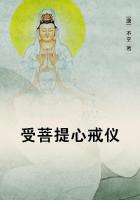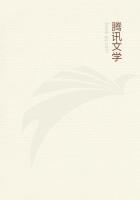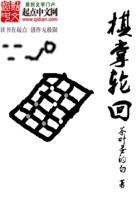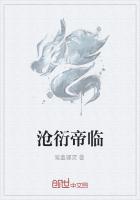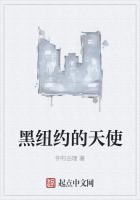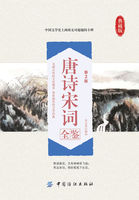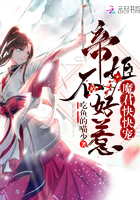There is no doubt but the kindly playwright had his conscience, and meant to make people think as well as laugh. I know of none of his plays that is of wrong effect, or that violates the instincts of purity, or insults common sense with the romantic pretence that wrong will be right if you will only paint it rose-color. He is at some obvious pains to "punish vice and reward virtue," but I do not mean that easy morality when I praise his; I mean the more difficult sort that recognizes in each man's soul the arbiter not of his fate surely, but surely of his peace. He never makes a fool of the spectator by feigning that passion is a reason or justification, or that suffering of one kind can atone for wrong of another. That was left for the romanticists of our own century to discover; even the romanticists whom Goldoni drove from the stage, were of that ******r eighteenth-century sort who had not yet liberated the individual from society, but held him accountable in the old way. As for Goldoni himself, he apparently never dreams of transgression; he is of rather an explicit conventionality in most things, and he deals with society as something finally settled. How artfully he deals with it, how decently, how wholesomely, those who know ,Venetian society of the eighteenth century historically, will perceive when they recall the adequate impression he gives of it without offence in character or language or situation. This is the perpetual miracle of his comedy, that it says so much to experience and worldly wisdom, and so little to inexperience and worldly innocence. No doubt the Serenest Republic was very strict with the theatre, and suffered it to hold the mirror up to nature only when nature was behaving well, or at least behaving as if young people were present. Yet the Italians are rather plain-spoken, and they recognize facts which our company manners at least do not admit the existence of. I should say that Goldoni was almost English, almost American, indeed, in his observance of the proprieties, and I like this in him; though the proprieties are not virtues, they are very good things, and at least are better than the improprieties.
This, however, I must own, had not a great deal to do with my liking him so much, and I should be puzzled to account for my passion, as much in his case as in most others. If there was any reason for it, perhaps it was that he had the power of taking me out of my life, and putting me into the lives of others, whom I felt to be human beings as much as myself. To make one live in others, this is the highest effect of religion as well as of art, and possibly it will be the highest bliss we shall ever know. I do not pretend that my translation was through my unselfishness; it was distinctly through that selfishness which perceives that self is misery; and I may as well confess here that I do not regard the artistic ecstasy as in any sort noble. It is not noble to love the beautiful, or to live for it, or by it; and it may even not be refining.
I would not have any reader of mine, looking forward to some aesthetic career, suppose that this love is any merit in itself; it may be the grossest egotism. If you cannot look beyond the end you aim at, and seek the good which is not your own, all your sacrifice is to yourself and not of yourself, and you might as well be going into business. In itself and for itself it is no more honorable to win fame than to make money, and the wish to do the one is no more elevating than the wish to do the other.
But in the days I write of I had no conception of this, and I am sure that my blindness to so plain a fact kept me even from seeking and knowing the highest beauty in the things I worshipped. I believe that if I had been sensible of it I should hays read much more of such humane Italian poets and novelists as Manzoni and D'Azeglio, whom I perceived to be delightful, without dreaming of them in the length and breadth of their goodness. Now and then its extent flashed upon me, but the glimpse was lost to my retroverted vision almost as soon as won. It is only in thinking back to there that I can realize how much they might always have meant to me. They were both living in my time in Italy, and they were two men whom I should now like very much to have seen, if I could have done so without that futility which seems to attend every effort to pay one's duty to such men.
The love of country in all the Italian poets and romancers of the long period of the national resurrection ennobled their art in a measure which criticism has not yet taken account of. I conceived of its effect then, but I conceived of it as a misfortune, a fatality; now I am by no means sure that it was so; hereafter the creation of beauty, as we call it, for beauty's sake, may be considered something monstrous. There is forever a poignant meaning in life beyond what mere living involves, and why should not there be this reference in art to the ends beyond art?
The situation, the long patience, the hope against hope, dignified and beautified the nature of the Italian writers of that day, and evoked from them a quality which I was too little trained in their school to appreciate. But in a sort I did feel it, I did know it in them all, so far as I knew any of them, and in the tragedies of Manzoni, and in the romances of D'Azeglio, and yet more in the ****** and modest records of D'Azeglio's life published after his death, I profited by it, and unconsciously prepared myself for that point of view whence all the arts appear one with all the uses, and there is nothing beautiful that is false.
I am very glad of that experience of Italian literature, which I look back upon as altogether wholesome and sanative, after my excesses of Heine. No doubt it was all a minor affair as compared with equal knowledge of French literature, and so far it was a loss of time. It is idle to dispute the general positions of criticism, and there is no useful gainsaying its judgment that French literature is a major literature and Italian a minor literature in this century; but whether this verdict will stand for all time, there may be a reasonable doubt.
Criterions may change, and hereafter people may look at the whole affair so differently that a literature which went to the ****** of a people will not be accounted a minor literature, but will take its place with the great literary movements.
I do not insist upon this possibility, and I am far from defending myself for liking the comedies of Goldoni better than the comedies of Moliere, upon purely aesthetic grounds, where there is no question as to the artistic quality. Perhaps it is because I came to Moliere's comedies later, and with my taste formed for those of Goldoni; but again, it is here a matter of affection; I find Goldoni for me more sympathetic, and because he is more sympathetic I cannot do otherwise than find him more natural, more true. I will allow that this is vulnerable, and as I say, I do not defend it. Moliere has a place in literature infinitely loftier than Goldoni's; and he has supplied types, characters, phrases, to the currency of thought, and Goldoni has supplied none. It is, therefore, without reason which I can allege that I enjoy Goldoni more. I am perfectly willing to be rated low for my preference, and yet I think that if it had been Goldoni's luck to have had the great age of a mighty monarchy for his scene, instead of the decline of an outworn republic, his place in literature might have been different.

